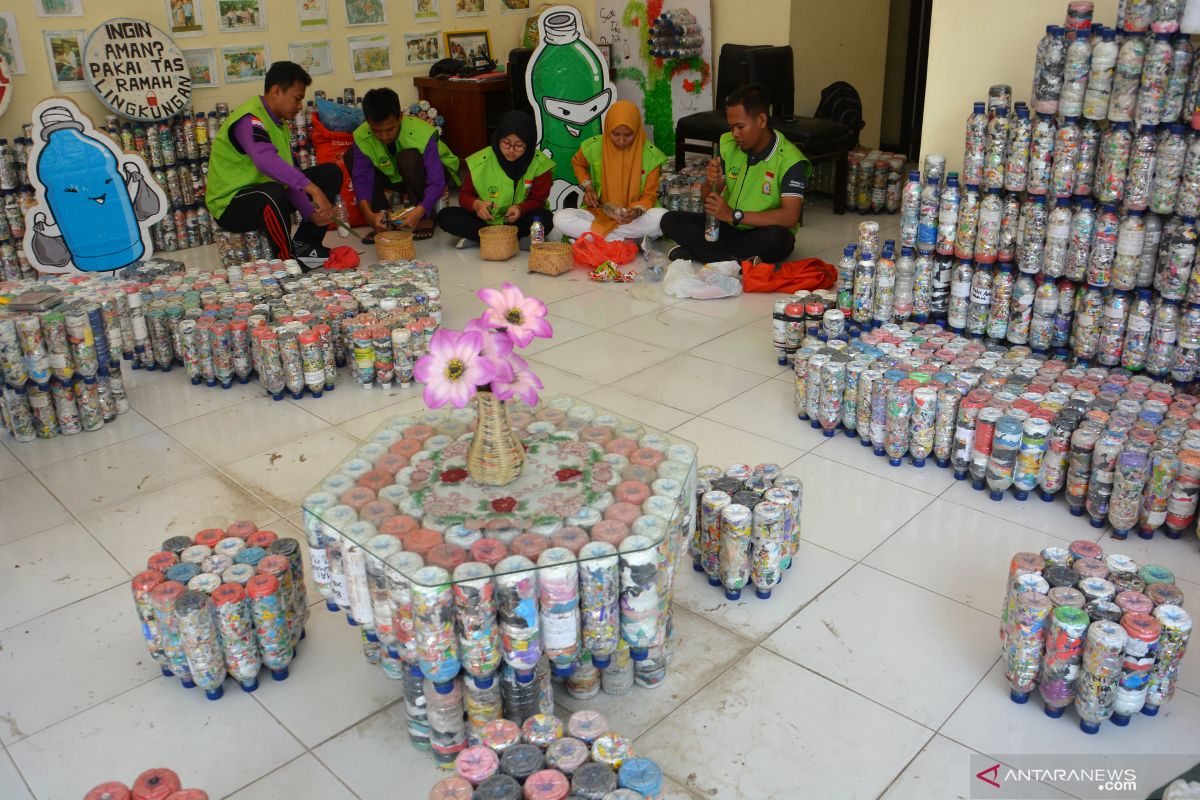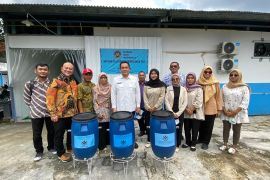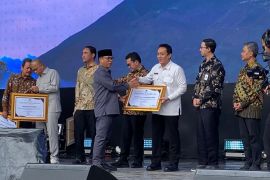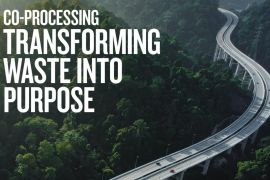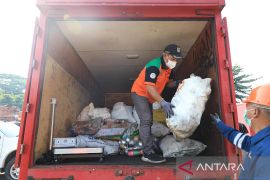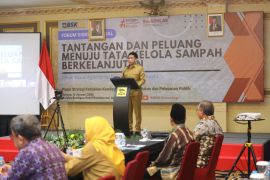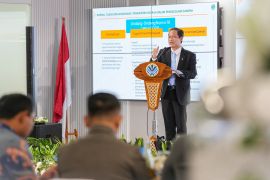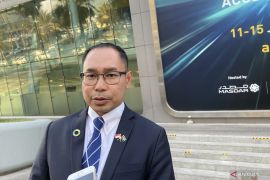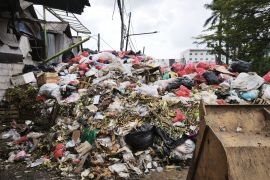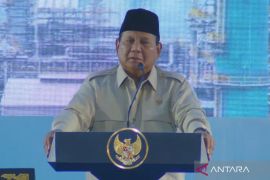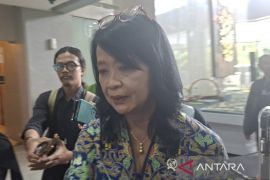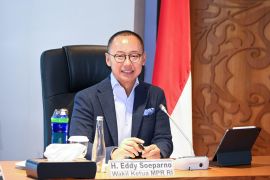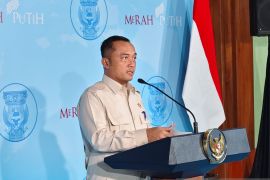Recycling is the process of converting waste material into new treasures or products of better quality or for enhanced environmental value.
Along with recycling, re-using and re-purposing are also effective ways of ensuring that non-biodegradable items do not end up in landfills.
In light of this, the Cleanliness and Landscaping Service of Musirawas Utara District in the Indonesian province of South Sumatra has been able to transform household waste into economically valuable handicrafts.
"Utilizing waste, such as household trash, to make economically valuable handicrafts can also help realize environmental cleanliness," Musirawas Utara Cleanliness and Landscaping Service spokesperson Herawati remarked, Friday.
Processing household waste into valuable handicrafts was also in line with the recommendation of the local government in the so-called 3R program of Reuse, Reduce, and Recycle, implemented since 2016, she noted.
The 3R program, apart from producing organic fertilizers for hydroponic plants, will also utilize waste plastic and used cloth to make craft bags and mats apart from tissue and pen boxes, according to Herawati.
"All household waste material can be turned into economically valuable handicrafts to supplement the income of craftsmen, in addition to making the Musirawas Utara District clean of trash," she emphasized.
Since the expansion to separate from Musirawas District in 2013, the new autonomous district of Musirawas Utara remains categorized as a disadvantaged region and unclean, with household rubbish strewn all over, Herawati noted.
Nonetheless, the 3R waste management system can be implemented by one and all in their daily activities with guidance from Cleanliness and Landscaping Service officers, she pointed out.
The officers will provide training to the public in the smallest neighborhood community and gradually run it up to the village and sub-district community levels, she remarked.
Implementation of the 3R system is one of the waste management solutions in addition to processing it into compost and for electricity, according to Herawati.
In future, the Cleanliness and Landscaping Service also has a program to process plastic resin owing to its good prospect, but for now, it has yet to be executed due to the absence of a plastic resin processing machine.
Waste that cannot be processed into a household economic activity will be used to fill areas that are hollow and can also be used to produce biogas and electric power, Herawati stated.
Utilization of household waste to create new sources of revenue for the society can also offer opportunities for the Musi Rawas Utara District to bag the Adipura environmental awards for clean and green cities.
Furthermore, hard work and creativity in managing household waste can help to realize a clean, beautiful, and trash-free Musirawas Utara, she noted.
Herawati expressed gratitude for the government's 3R program, as it can significantly raise additional revenue, as long as waste production continues.
"With the 3R program, the public can gain knowledge and additional income, so we hope the program would continue to be improved in future," she noted.
Apart from the Musirawas Utara District, the Tarakan city administration in North Kalimantan has applied the universal waste program to maintain environmental cleanliness.
The universal waste program has been applied at Pamusin Village as a pilot project for other villages in North Kalimantan, Sofian Raga, the mayor of Tarakan, remarked last Friday.
Such a program was deemed successful in reducing scattered trash, so the measure has also been adopted by other villages in Tarakan, such as Selumit, Selumit Pantai, Sebengkok, and Karang Harapan, in addition to Kampung Empat, he stated.
"The universal waste program of the Tarakan city administration involves all public elements to participate in keeping the environment clean without using a trash bin," Sofian remarked.
With the program, the community members are not allowed to use trash cans in front of their houses, as the garbage collectors will go directly to each house to collect the trash before disposal in landfills, he remarked.
"The garbage collectors are compensated by the owner of the trash though not with a specific nominal but taking into account the sincerity of the citizens in the form of contributions paid each month," he noted.
The program will no longer necessitate homeowners to head out of their homes solely to dump waste into trash cans, as daily, the garbage collectors come directly to pick it up, he pointed out.
"Thus, homeowners do not need to get out of their houses to dump the garbage, as the trash collectors are always ready every day to pick it up," Sofian Raga explained.
All trash cans scattered on the roadside will be demolished in line with the local government commitment to maintain cleanliness to the fullest possible extent, so that garbage is no longer strewn on the roadside to rot, the mayor further asserted.
In line with the universal waste program, by the end of 2016, Tarakan City will no longer have trash cans littering the streets, Raga noted.
Waste management entails all those activities and actions required to manage waste, from its inception to final disposal.
This encompasses collection, transportation, treatment, and disposal of waste along with monitoring and regulation.
It also encompasses the legal and regulatory framework that relates to waste management encompassing guidance on recycling, among others.
With the universal waste management program in Tarakan, the local community will sooner or later be able to fully avail safe and reliable waste collection services provided by the city's leading environmental services provider.
Editor: Rahmad Nasution
Copyright © ANTARA 2019
